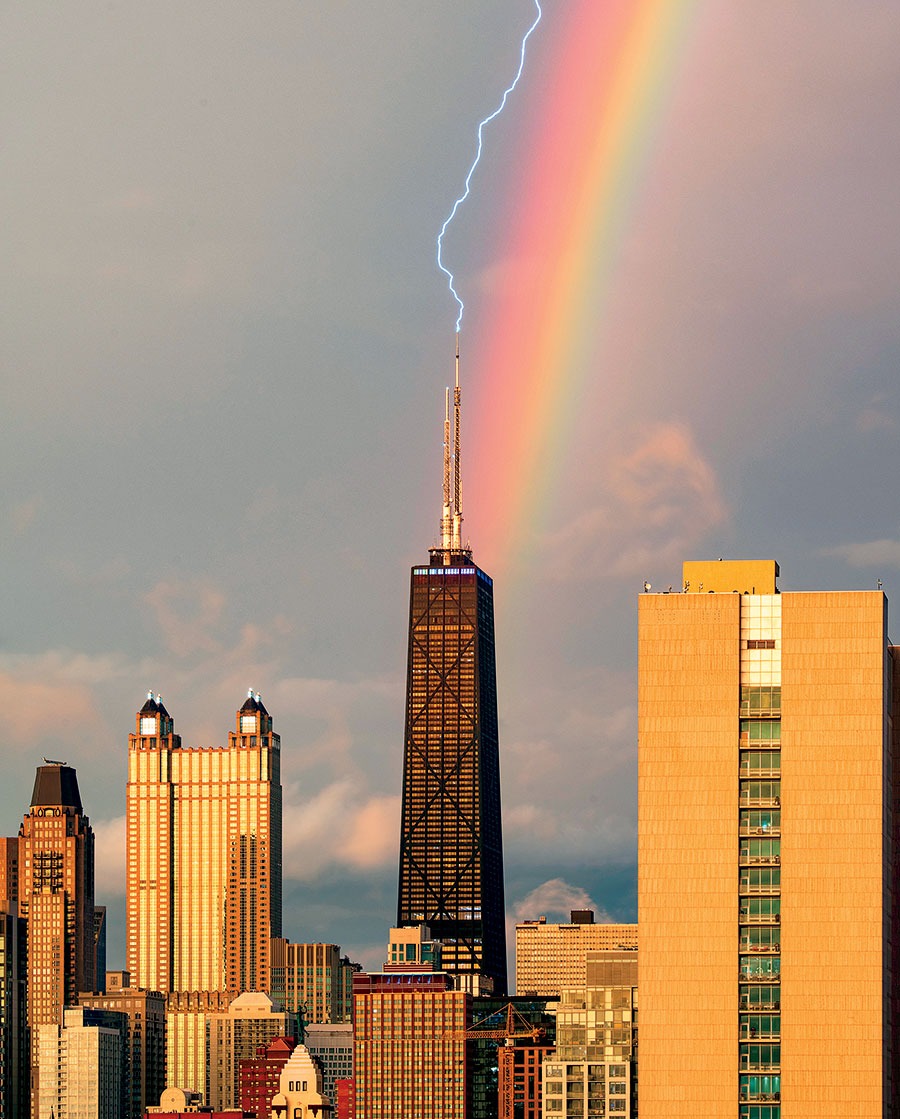Tell an outlander you’re from Chicago and you’re likely to hear some version of “But, man, the weather.” Sure, it gets chilly here, but it’s not as cold or snowy as people think. (Boston receives significantly more snow, for instance, and we are hardly Fargo or Duluth on the teeth-chatter index.) And having to put on a parka now and again is a small burden next to our geographical blessings.
While great swaths of the West have burned in recent years, the Chicago area’s risk is relatively low. We don’t have the same concentration of quick-burning trees, conifers. Nor do we have the drought conditions or Santa Ana winds. Nobody, especially following 2021’s sesquicentennial of our defining blaze, is going to argue that Chicago hasn’t been vulnerable to conflagration, but in terms of this century’s most ardent fire threat, we’re looking pretty good.
Our risk from another of the ancient elements, water, seems comparatively low, too. Yes, Lake Michigan has been acting up as of late, with high levels diminishing beaches and threatening lakefront buildings, and a confluence of extreme factors could bring serious flooding into lower parts of the city.
But before such dire scenarios occur, the lake’s water levels may well fluctuate back down. And, anyway, they don’t imply an existential threat compared with what folks in low-lying coastal areas (looking at you, Florida) face as the ice caps continue to melt and oceans rise.
Besides, even if the lake does slosh about in its tub now and again, it’s still, you know, Lake Michigan. The mere existence of this massive freshwater reservoir, the world’s fourth largest by surface area, is awesome. Even if you moved here mostly for an internship or a romance, it’s easy to feel quite smug about having set up camp next to what is already one of the world’s great natural resources and will only increasingly be so.
So the next time somebody rolls their eyes at you about Chicago weather, you can just feel sorry for their inability to see the bigger picture.



